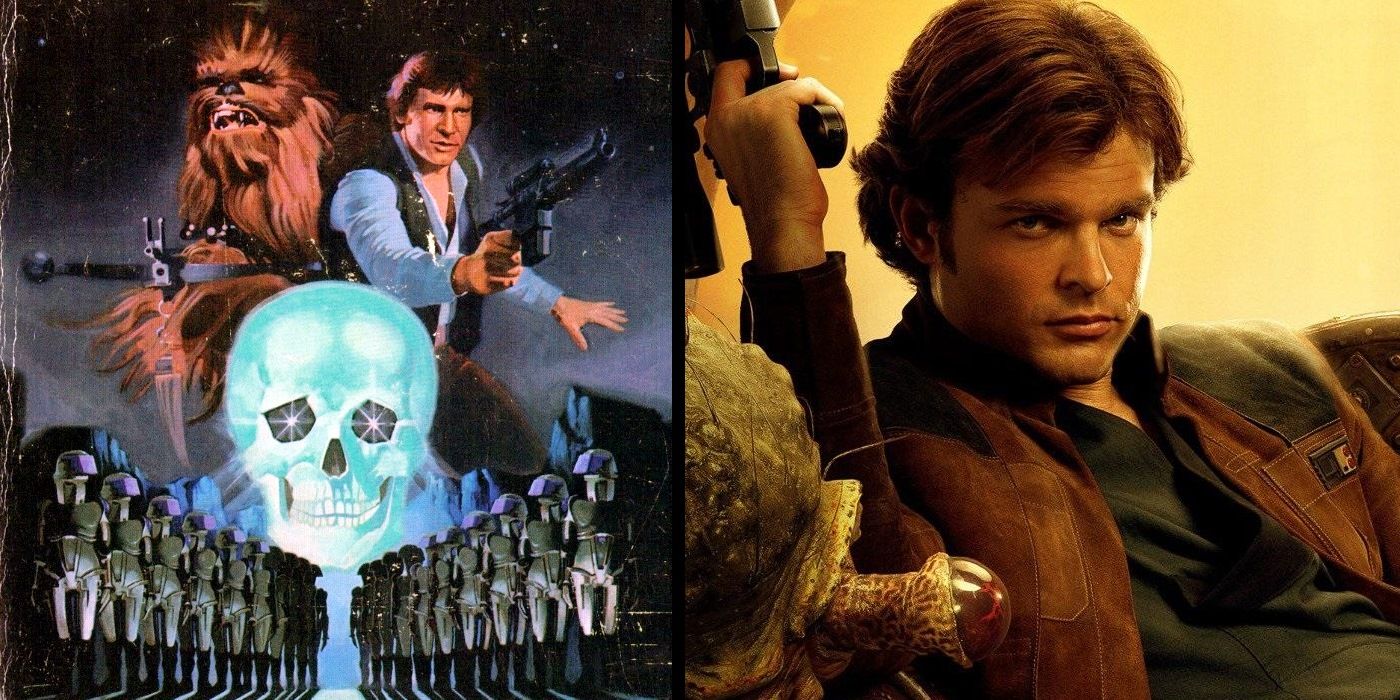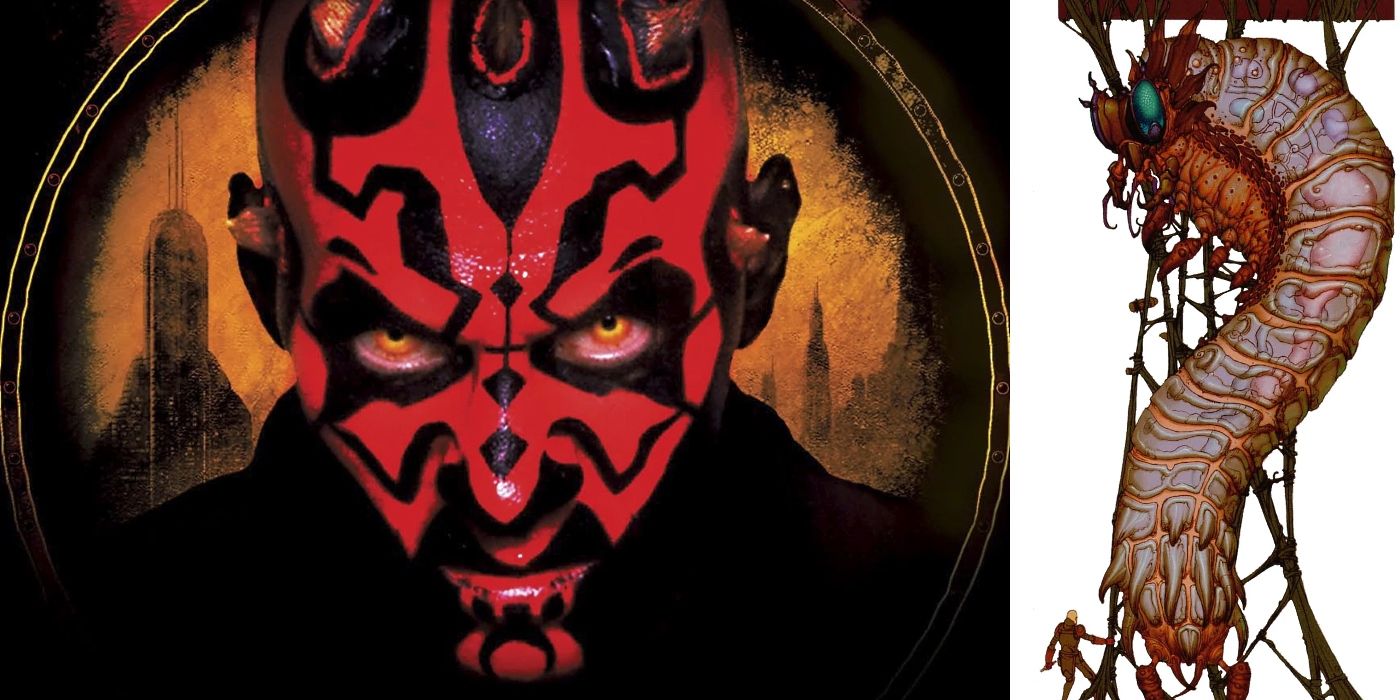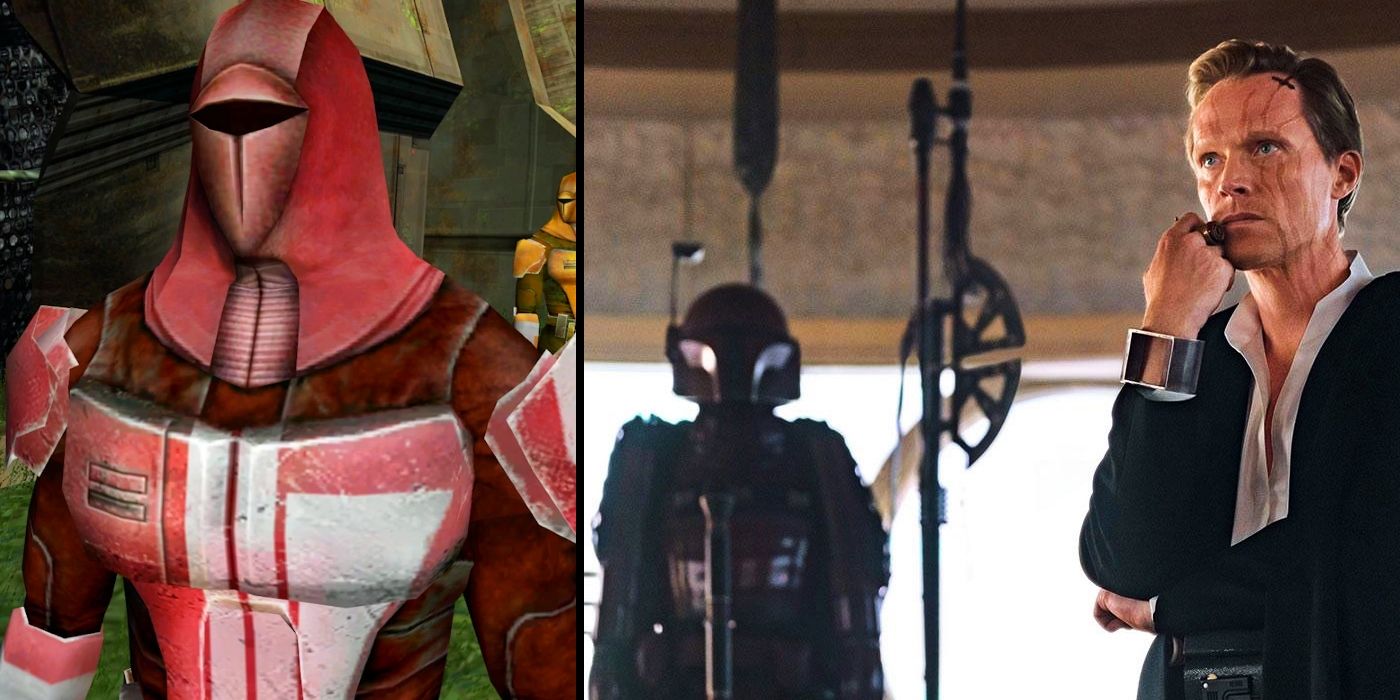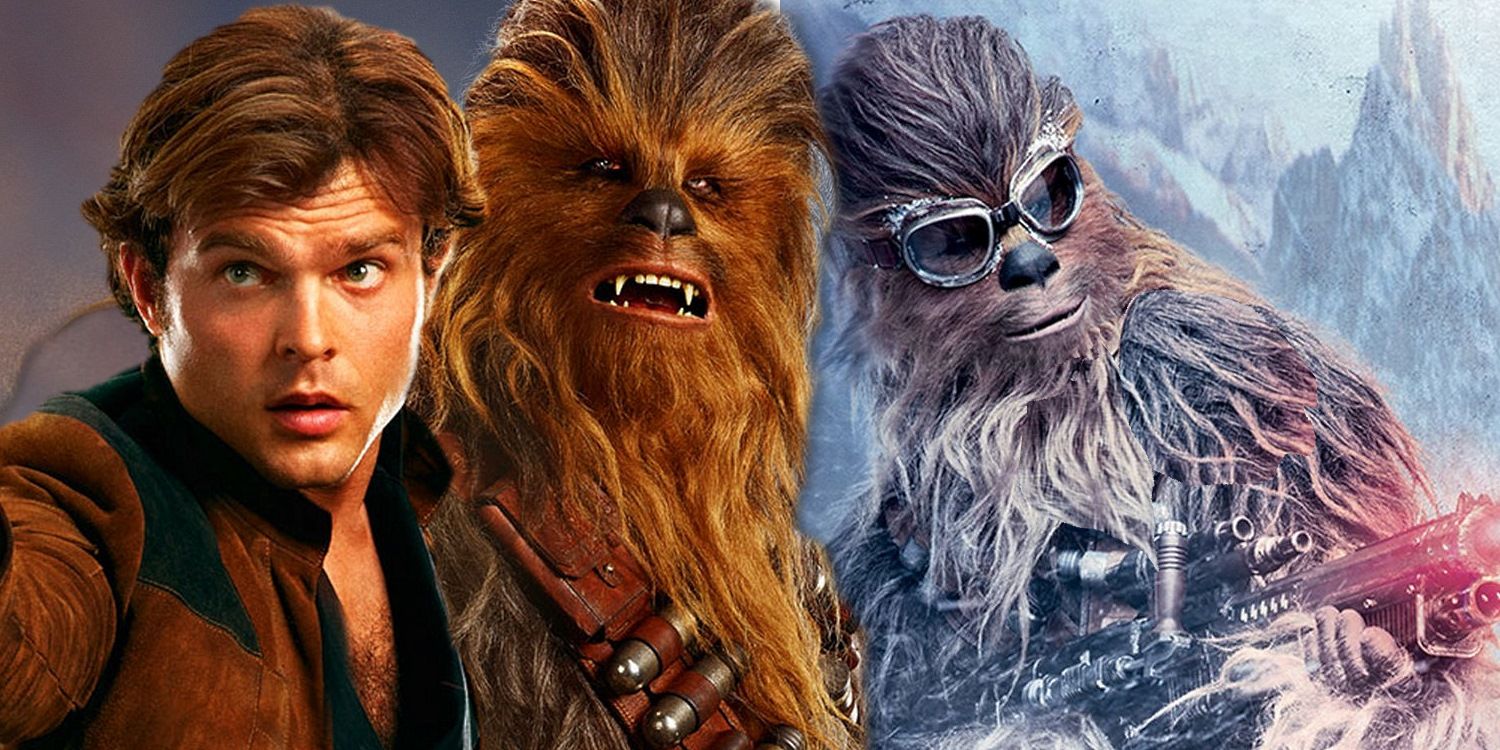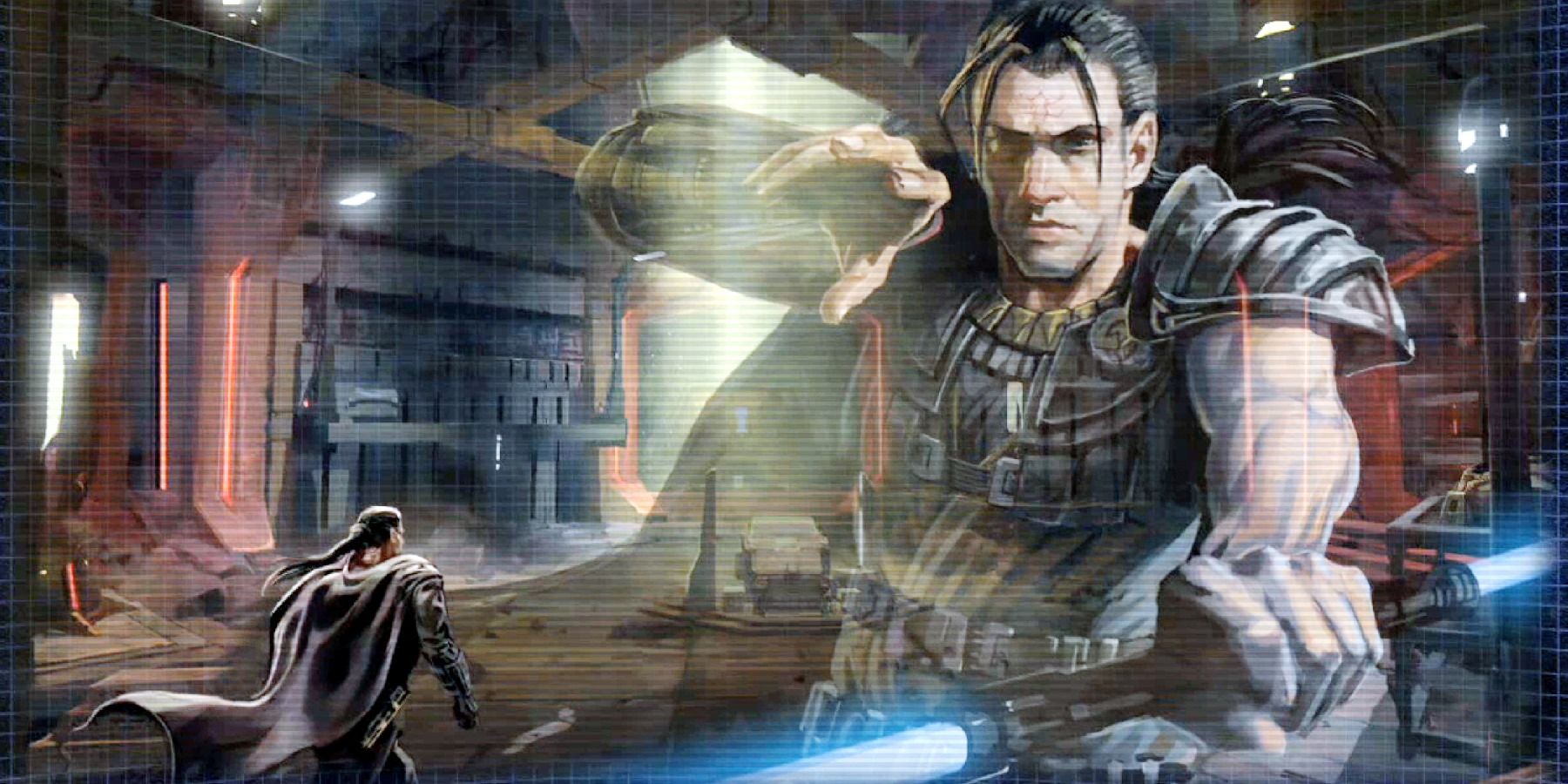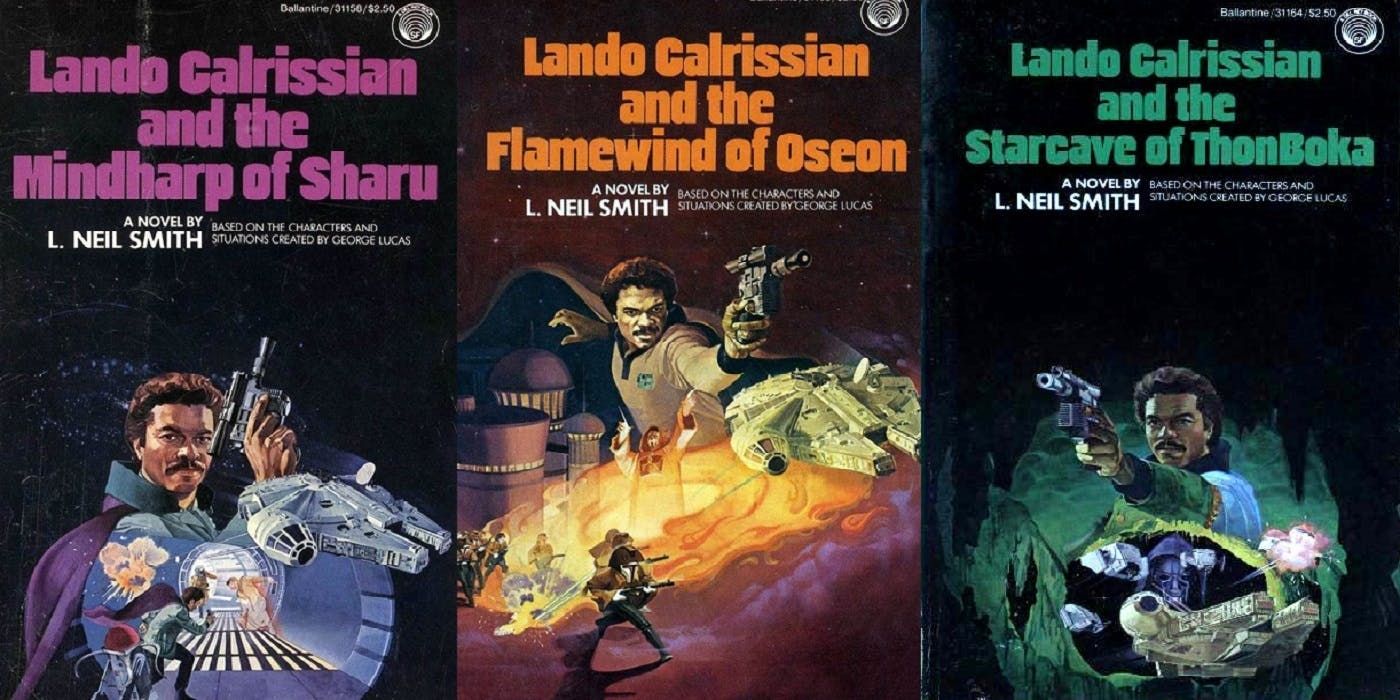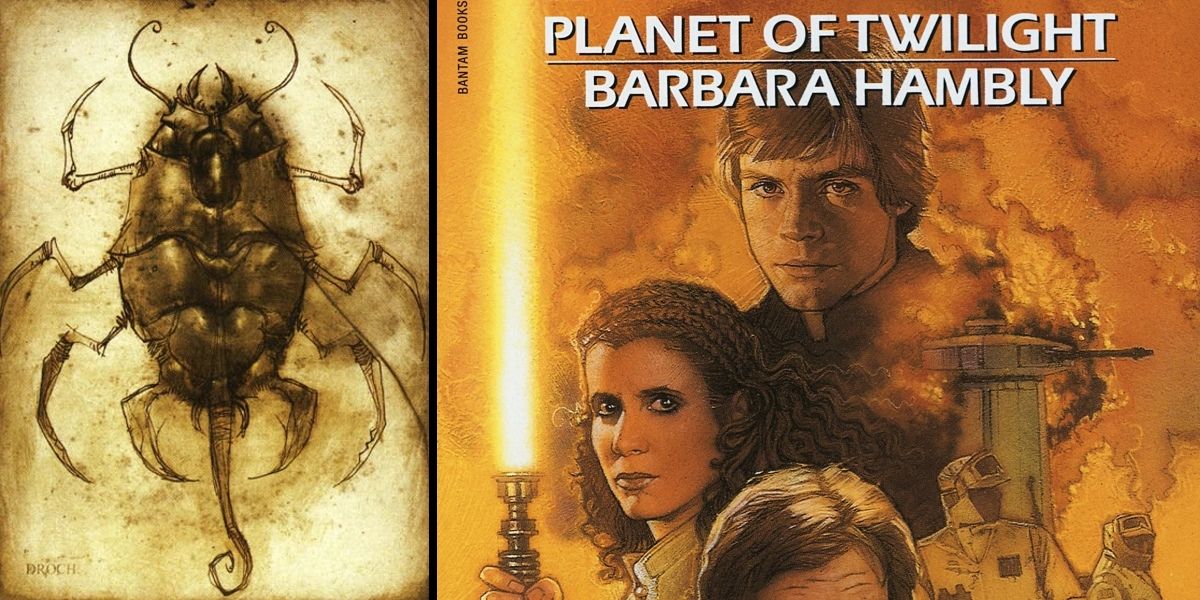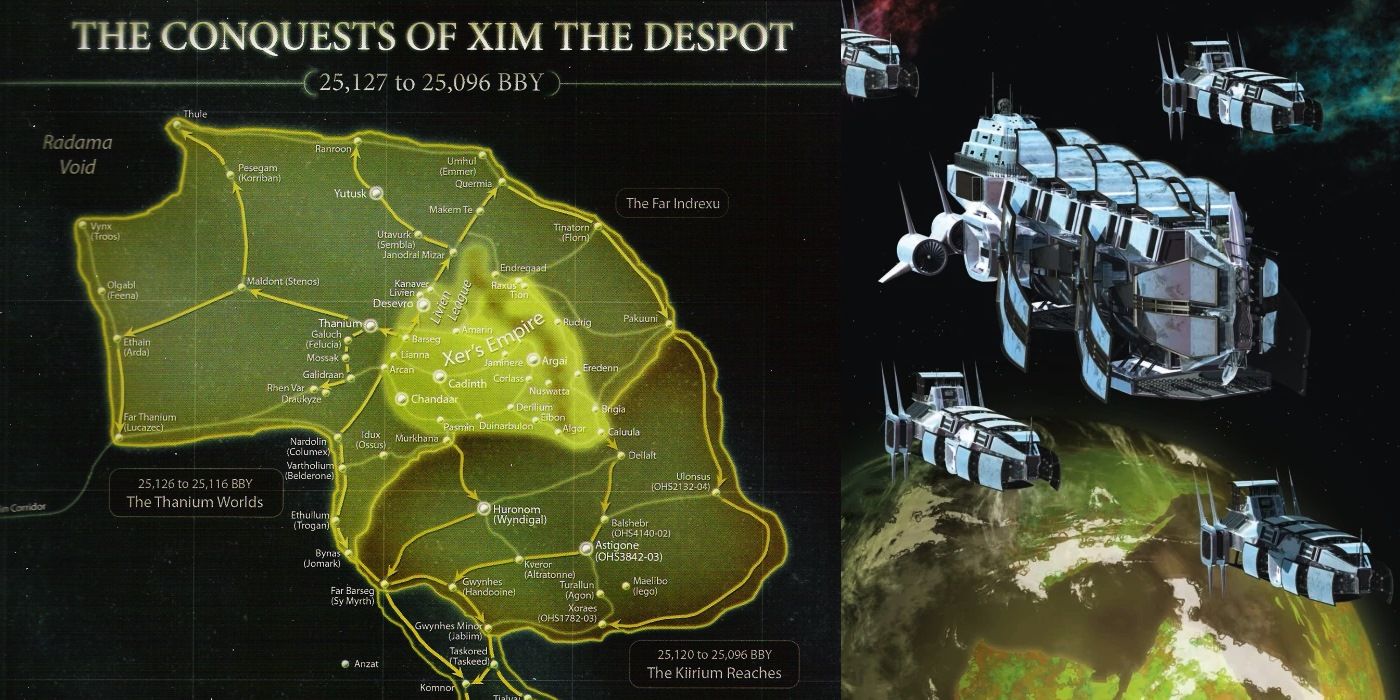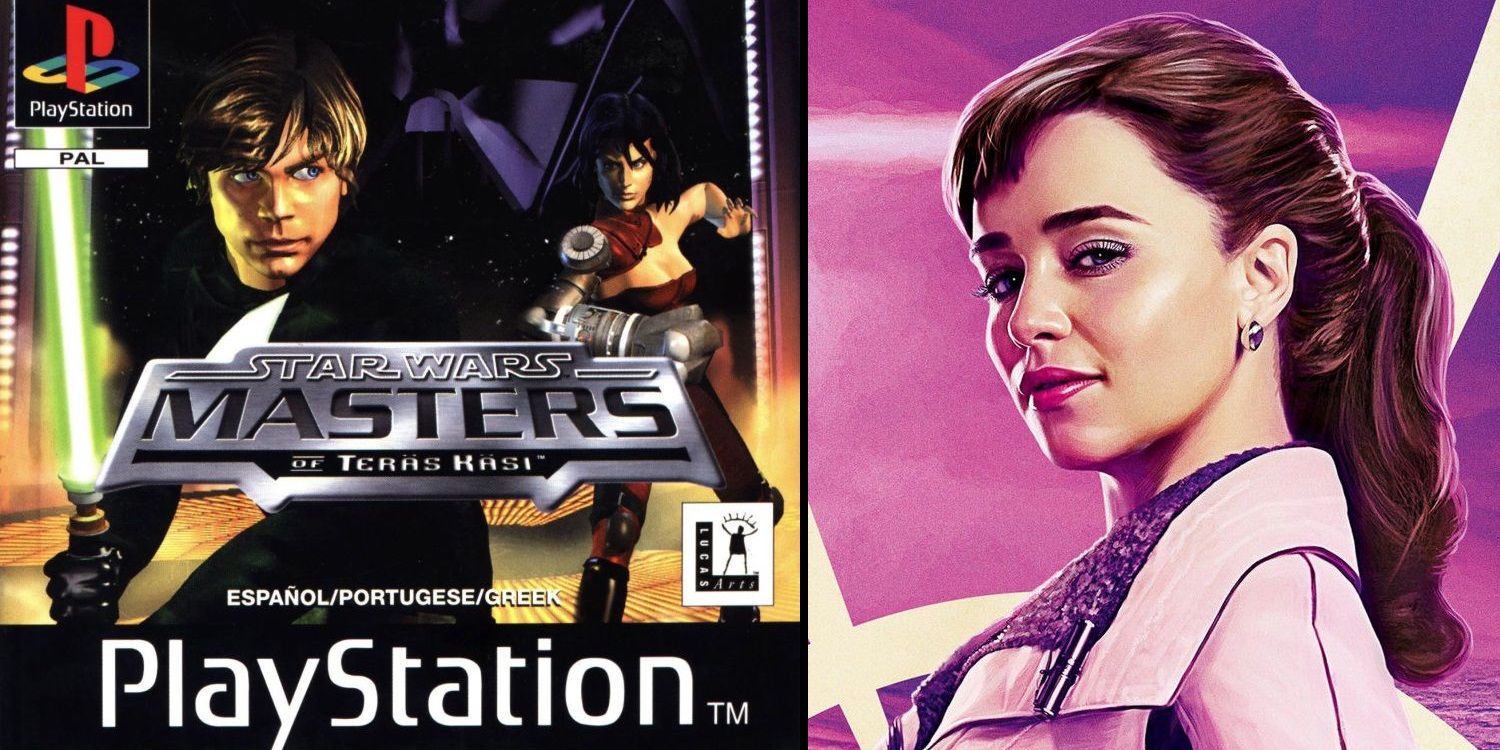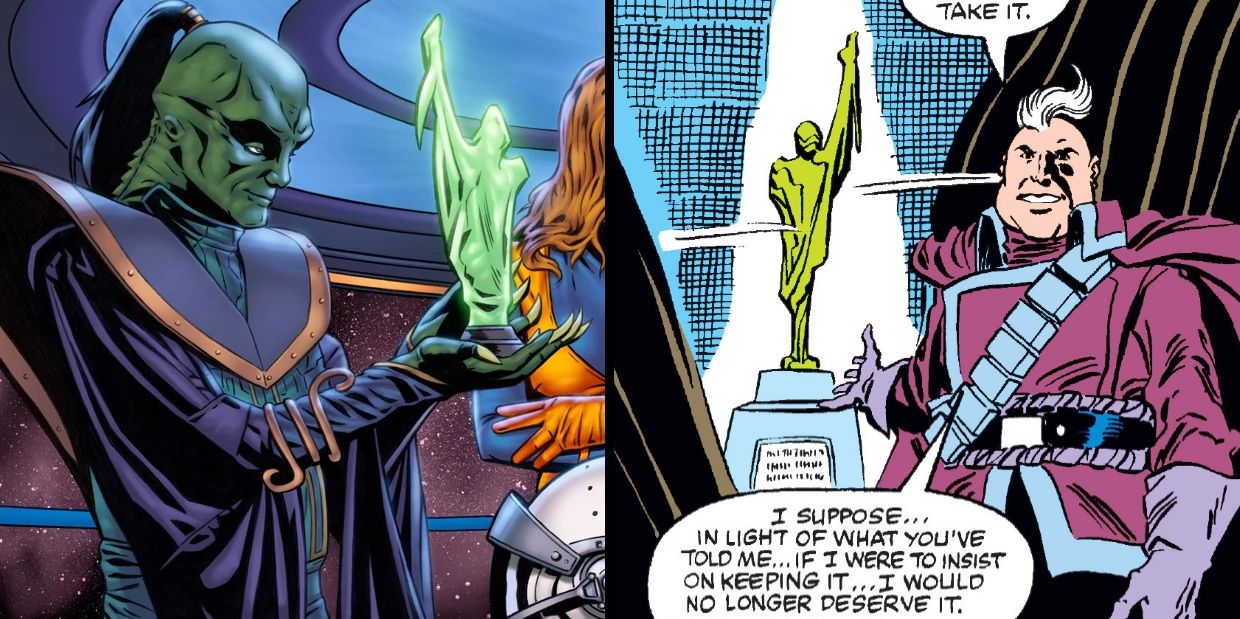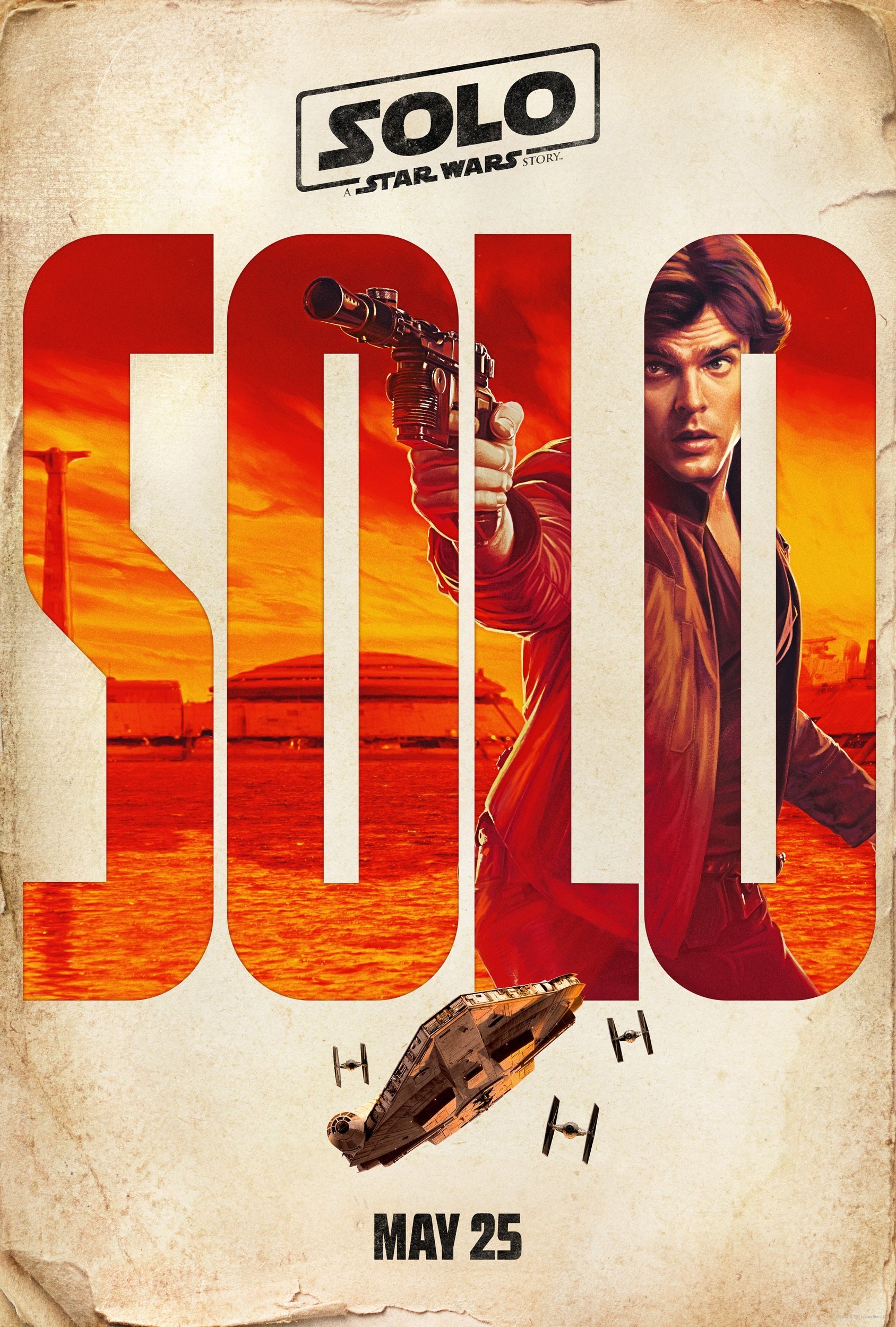WARNING: This article contains SPOILERS for Solo: A Star Wars Story
The expanded world of Star Wars may have been rendered non-canonical when Disney took ownership, but Solo just brought a new batch of fan-favorite stories back into canon. That may not seem like much of a development for casual fans of the films, or even the comics books and video games. But for the passionate fans who spent countless hours soaking up every Star Wars novel for more lore and history, it's one step closer to seeing their favorite tales given new life.
We can't promise that Lucasfilm has returned ancient histories of Sith, Jedi, and cosmic empires with the intention of exploring them further. But considering how beloved some of the storytelling being folded back into canon already is, that gesture alone might be enough. Whether you saw Solo or not, these updates shouldn't be missed.
RELATED: The Biggest Lies Han Solo Told in The Original Trilogy
They may be blink-and-you-miss it additions, or details reveal in supplemental materials for the film, but make no mistake: these Star Wars "Legends" are now the franchise's official canon.
The Legacy of Xim The Despot
Its fitting that of all the Star Wars novels and lore to be referenced in Han Solo's origin movie, the book trilogy of Han Solo Adventures should get some of the best nods. In the case of the massive crystal skull displayed in Dryden's trophy room, it isn't just a jab at George Lucas and Harrison Ford's famous Indiana Jones movie being made. According to the Official Guide to the film, the object in question is the "myrtag crystal masthead of Xim the Despot."
The famous cosmic conqueror lived around 25,000 years before these movies, taking over the systems of the Tion Cluster (a major location in Star Wars: The Old Republic) with the first army of battle droids the galaxy had seen. And with each one bearing the symbol of his rule - a skull - this Easter Egg is more than fitting.
So it seems we can add those chapters of his history to the new Star Wars Canon... but it's not the only part of Xim's legacy Dryden is concerned with.
Taozin Grub
Another one of Dryden Vos's prized possessions that can actually be glimpsed in the movie is the Taozin Grub, a large cross between a beetle, a centipede, and... well, a grub. It's preserved, or at least seems to be, and according to the Official Guide was a gift to Dryden from an Imperial Moff (a gesture that makes more sense after learning of the Empire's connection to Crimson Dawn in the film's final act). The Taozin shell is famous for resisting blastersaand lights Amber's, but if the Grub were alive, then Dryden could've introduced the audience to the expanded universe of Force-Sensitive creatures.
RELATED: LEGO Spoiled The Darth Maul Cameo Before Solo
In the case of the Taozin Grub (so named due to its size, since a full grown Taozin is at least a meter long) that attunement to The Force actually renders them invisible to Force Users, and are able to make anyone or anything connected to then similarly invisible. The creature was introduced in the 2001 novel Darth Maul: Shadow Hunter, with the former Sith explaining how the negative space in The Force was a unique phenomenon. So unique, in fact, that Sith Inquistors operating under Darth Vader were apparently outfitted with amulets made from Taozin, so as to remain undetected by their Jedi Prey.
They may be less famous as the Force-nullifying Ysalamir featured in the Thrawn Trilogy... but it's a start.
Mandalorian Rally Master Armor
Now, the item most likely to get people's attention: the large, red, Mandalorian armor on full display in the background of every scene in Vos's prized trophy room. Some fans assumed that its presence in early photographs was a hint towards Dryden's Mandalorian heritage, but the armor is far from the standard suit worn by Boba Fett, Jango, or any other modern Mabdalorian. In fact, this armor is a callback to the Knights of the Old Republic fiction previously assumed to be non-canon after Disney purchased Lucasfilm.
Fans will remember it as one variation of Mandalorian Neo-Crusader armor, adopted by the warrior race by the Great Sith War (thousands of years before the Star Wars movies). The standard troops wore blue armor into battle, Field Marshals wore gold, and frontline veterans wore silver. However, the crimson was reserved for Rally Masters, meant to stand out in battle and untie the infantry surrounding them. This history is confirmed in Solo: The Official Guide, referring to the suit as the movie version of "Rally Master Armor."
Rwookrrorro, The Wookiee Capital
The shot of Chewbacca and another Wookiee in trailers for Solo sparked instant debate, with fans wondering if Lucasfilm was finally going to bring Chewie's wife Malla into movie canon (previously seen only in the Star Wars Christmas Special). But alas, the smaller Wookiee is just one of a handful of slaves Chewie rescues when the heroes head to the spice mines of Kessel.
If you're paying attention, the Wookiee's fellow slaves actually refer to him by name, "Sagwa," multiple times during the breakout. But the real addition to the Star Wars movie lore comes in Solo: The Official Guide, when Sagwa is singled out as hailing from the city of Rwookrrorro on the planet Kashyyyk.
Another settlement on the Wookiee homeworld isn't a shock in itself, but most casual fans won't know anything beyond the actual name of the planet (and the diehards will know how to actually spell it). But before the planet was officially given its name, Heir to the Empire author Timothy Zahn pitched "Rwookrrorro" as an option. The idea was turned down, so Zahn made it the capital of the planet, instead.
The Temple of Exar Kun
When the Star Wars movies revealed that Luke Skywalker had taken only a small handful of students before exiling himself to Ahch-To, fans were crushed. Well, fans of the Jedi Academy novels by Kevin J. Anderson, which had followed Luke's efforts to found a new Jedi Temple on Yavin 4... and the dark forces that sought to taint his new apprentices.
That sinister influence turned out to be the spirit of Exar Kun, eventually revealed to be a Jedi who had fallen, pursued the ways of the Sith, and declared himself a Sith Lord. When the forces of 'good' eventually converged on his immaculate temple - built from obsidian by the enslaved inhabitants of Yavin 4 - Exar Kun channeled the lives of his slaves to preserve his spirit within it. there it sat for four millennia, until his crypt was opened, and Luke's young Jedi showed him a way out.
RELATED: Star Wars Characters You Didn't Know Are Joining The Canon
Apparently, the minds at Lucasfilm have decided the story of Exar Kun is too good to erase from canono, as well. Luke may not have founded a temple on Yavin 4, but pay attention to the small table in Dryden Vos's office built on top of a slab of black stone. The inscriptions visible in heiroglyphics and incantations are confirmed in the film's official art book to be Sith markings, since the slab of ebony itself is pulled from the Temple of Exar Kun.
The Adventures of Lando Calrissian
Typically, the writers of modern Star Wars fiction try to keep their nods to lore or stories now rendered 'Legends' somewhat subtle (most of the time, anyway). But then there's Lando Calrissian. Since subtlety isn't his style, the owner of the Millennium Falcon brings his expanded universe back into canon through an actual novelization, recorded via hologram as "The Calrissian Chronicles."
Most of the references made are to L. Neil Smith's trilogy of Lando adventures, including the hero referencing the Sharu in his holo-recording, right up to the point that he almost utters "mindharp." But in Dryden Vos's collection, fans can also catch a glimpse of several Life Crystals, native to the planet Rafa. The precious gems first appeared in The Mindharp of Sharu, later returning in The Flamewind of Oseon (where Lando claims to have taken ownership of "a real money pit").
Even though the Life Crystals were revealed to drain intelligence of sentient beings around them, Dryden has a handful of the priceless objects near at hand.
The Droch
Officially referred to in the Solo guide as a "cerulean droch from Felucia," the large beetle can also be spotted thanks to its silhouette, marked by its many legs. At first glance, it may seem a scarab or rare insect like the many others in Dryden Vos's trophy room. But believe it or not, this bug's species is responsible for more deaths in the galaxy than almost any other ruler. It proves Dryden's nerve, as well. Because centuries ago in the Star Wars universe, these tiny Drochs wiped out billions when their spread was misunderstood as a new ailment: the Death Seed Plague.
The truth of the disease was revealed in the novel Planet of Twilight, when the original trilogy heroes discovered the Droch - tiny beetles that burrow into a host, disguise themselves as natural tissue, and feed on their life force until their skin sheds, and the host dies. Reproducing and gaining sentience with more and more consumed hosts, the Droch plague was almost impossible to stop.
Does one Droch's appearance here mean Dzym, the Droch who evolved to look almost human, and lead his species to take over the galaxy, is also canon? We're going to say yes.
The Queen of Ranroon
Finally we get to the entire reason that Xim, a cosmic, despotic ruler actually became a person if interest to Han Solo in the first place. After all, if a job doesn't promise to win him either a ton of credits or a boatload of notoriety, the eodds are low that Han and Chewie are interested. Which is exactly where the Queen of Ranroon comes in: the legendary treasure ship of Xim the Despot, lost to all civilization on a distant world. The main goal of the novel Han Solo and the Lost Legacy, as well.
It's a classic adventure premise if there ever was one - swap out the spaceship for a wooden one, and it's a pirate story just as easy. In the book Hand and Chewie really did find the lost treasure ship of Xim the Despot. But they could have used some help from Dryden Vos, who has a dataplaque containing what is basically a stellar version of a treasure map. Why he has such a clue and has yet to cash in on the hunt is anyone's guess.
RELATED: Solo Confirms Clone Wars Character Death
That being said, Dryden IS obscenely wealthy... but is he as willing to believe in legend and myth as his Crimson Dawn master, the former Sith Maul? He does have Xim's crystal skull already...
Teräs Käsi
Qi'ra shows that she really has done some terrible things in her past - and probably with her bare hands - when she disarms and defeats the head of the Kessel mining operation in a matter of seconds (completely stunning L3-37). As she soon explains, the martial art just put on display is Teräs Käsi which she has learned under the service of Dryden Vos.
The martial art was introduced to the Star Wars mythology with Steve Perry's Shadows of the Empire novel in 1996. At the time, it was introduced as a fighting style created specifically to oppose the Jedi (or, in theory, and Force User). For all the action in the Star Wars world, there isn't much actual hand-to-hand combat to speak of. Teräs Käsi changes all that, granting users the ability to overwhelm a Force-sensitive opponent, and take even them by surprise.
The martial art gained its highest level of notoriety thanks to a fighting video game released for the PlayStation, but even now, actually seeing the fighting in motion is hard to come by. Which is probably why Qi'ra practice takes place... off-screen.
Dancing Goddess of the Godoan
Fans of the original Star Wars Comic series are in luck as well, with the actors of Solo actually interacting with one prop pulled directly out of the comics. The comic in question is Star Wars #99, "Touch of the Goddess." The prop is the prized statue dubbed the Dancing Goddess, sacred and lifesaving for the aliens of Godo.
The story reveals that the Godoans practice a faith that makes their worship of sacred statues necessary for the survival of their race. So when the statues go missing, they're not surprised to see an illness ravage their entire people. Eventually, Han realizes that the statues and their temple are a type of machine designed to make their world habitable. And the statue of the Dancing Goddess, a green sculpture roughly in the shape of a dancing figure, is a prized artifact current in the collection of one Lando Calrissian.
The Dancing Goddess can be seen in Dryden Vos's room, slightly different from the comics, but made of the same green glass. The best glimpse comes in the final fight, when it's smashed in the commotion... the Godoans will be remembered fondly.


